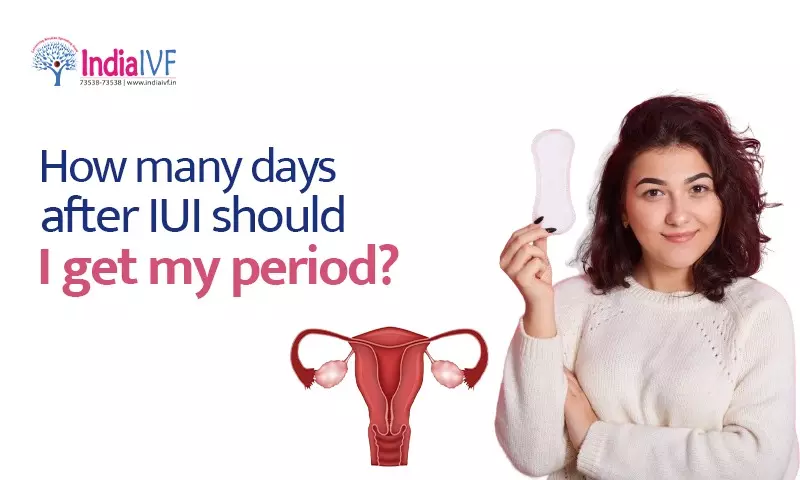Your cart is currently empty!



Intrauterine insemination (IUI) patients often have a lot of questions and concerns when they first start this reproductive therapy. This query encapsulates the hope and anticipation of this crucial moment and the demand for explanation.
Through this investigation, we hope to clarify the nuances around the time of the post-IUI menstrual cycle, identify variables that affect its fluctuations, and highlight the importance of comprehending this special stage of the reproductive process.
The timing of your cycle might change after IUI. It can come in between 10 and 14 days on average. Individual characteristics and medical interventions, however, may affect this period. Exercising patience and seeking advice from your healthcare practitioner, if necessary, is advisable.
The number of days that pass following IUI might vary depending on a number of circumstances, including:
1. Ovulation
Regarding ovulation, the timing of the IUI process is critical. Earlier menstruation may occur from an early luteal phase, which is the interval between ovulation and the onset of the menstrual cycle, being conducted too soon.
2. Fertility medications
Using fertility drugs during an IUI cycle might change hormone levels and interfere with the menstrual cycle, which could cause your period to arrive earlier or later.
3. Presence of menstrual irregularities
Timing differences in the menstrual cycle might result from anomalies in the menstrual cycle before an IUI procedure.
Read also: How many times IUI can be done?
After an intrauterine device (IUI), there are a number of reasons why periods could be delayed, such as pregnancy, stress, anxiety, hormone imbalances, and certain medical issues. The menstrual cycle might be disturbed by pregnancy.
Therefore, getting a pregnancy test is important if your period is noticeably delayed. Delays in menstruation can also be caused by stress and worry, and the emotional rollercoaster of reproductive treatments can lead to hormonal abnormalities.
It can be emotionally taxing to have an unsuccessful IUI, and the first period that follows may not be like your regular menstrual cycle. This might involve changes in the length of your menstrual cycle, more or decreased flow, or more severe cramps.
Your body may need time to rebalance since hormone levels might take time to settle. See your doctor if you have any worries or inquiries regarding your first period following an unsuccessful IUI.
Period delays following IUI are not uncommon, but they might raise concerns for women undergoing infertility treatments. After 20 days, if there’s still a big delay, you might need to contact a healthcare practitioner.
They can assess each case separately and suggest additional tests or actions. Severe pain, profuse bleeding, or other strange symptoms might point to an underlying problem that needs to be treated.
After IUI, the majority of periods are normal; nevertheless, persistent or severe symptoms, including heavy bleeding or unusual discomfort, should be investigated. Women may manage their symptoms and adjust to these changes while staying focused on their route to parenting by being aware of the possible causes.
Finally, it should be noted that the timing of menstruation following IUI is a complex factor that differs from person to person. Unpredictability along the voyage highlights the need for perseverance and fortitude.
People may approach the post-IUI phase with a combination of optimism and practicality by remaining informed, looking for support, and appreciating the uniqueness of each reproductive path. Recall that while we like the unknown, education, support from others, and self-care are invaluable tools for constructing the family of one’s dreams.
At India IVF Clinics we provide the most comprehensive range of services to cover all the requirements at a Fertility clinic including in-house lab, consultations & treatments.